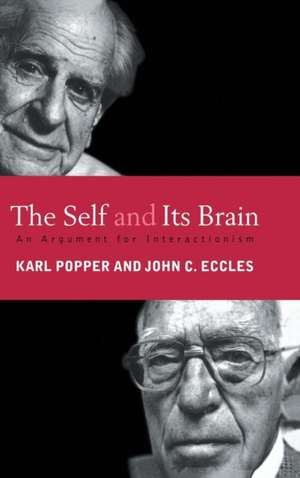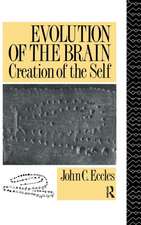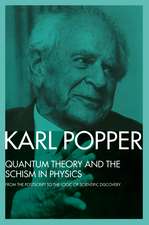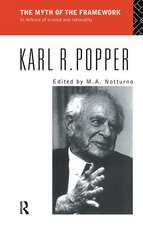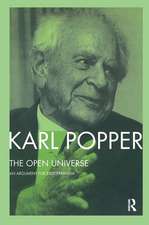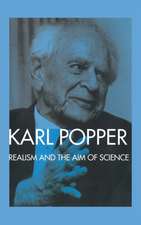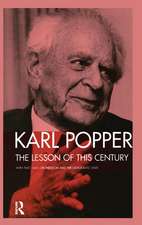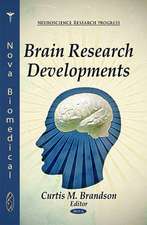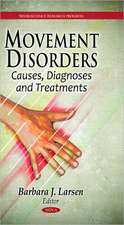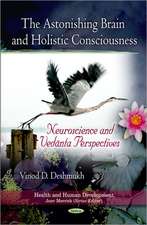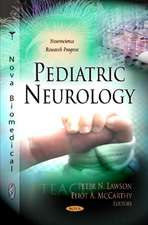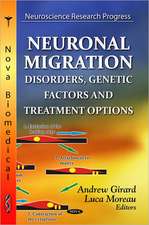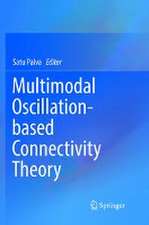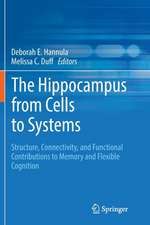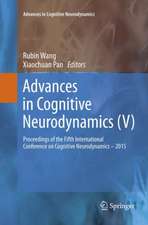The Self and Its Brain: An Argument for Interactionism
Autor John C. Eccles, Karl Popperen Limba Engleză Hardback – 26 noi 2015
In Part I, Popper discusses the philosophical issue between dualist or even pluralist interaction on the one side, and materialism and parallelism on the other. There is also a historical review of these issues.
In Part II, Eccles examines the mind from the neurological standpoint: the structure of the brain and its functional performance under normal as well as abnormal circumstances. The result is a radical and intriguing hypothesis on the interaction between mental events and detailed neurological occurrences in the cerebral cortex.
Part III, based on twelve recorded conversations, reflects the exciting exchange between the authors as they attempt to come to terms with their opinions.
| Toate formatele și edițiile | Preț | Express |
|---|---|---|
| Paperback (1) | 470.19 lei 6-8 săpt. | |
| Taylor & Francis – 23 feb 1984 | 470.19 lei 6-8 săpt. | |
| Hardback (1) | 1008.87 lei 6-8 săpt. | |
| Taylor & Francis – 26 noi 2015 | 1008.87 lei 6-8 săpt. |
Preț: 1008.87 lei
Preț vechi: 1230.33 lei
-18% Nou
Puncte Express: 1513
Preț estimativ în valută:
193.11€ • 202.48$ • 159.56£
193.11€ • 202.48$ • 159.56£
Carte tipărită la comandă
Livrare economică 30 ianuarie-13 februarie 25
Preluare comenzi: 021 569.72.76
Specificații
ISBN-13: 9781138131491
ISBN-10: 1138131490
Pagini: 616
Dimensiuni: 156 x 234 x 33 mm
Greutate: 1.3 kg
Ediția:1
Editura: Taylor & Francis
Colecția Routledge
Locul publicării:Oxford, United Kingdom
ISBN-10: 1138131490
Pagini: 616
Dimensiuni: 156 x 234 x 33 mm
Greutate: 1.3 kg
Ediția:1
Editura: Taylor & Francis
Colecția Routledge
Locul publicării:Oxford, United Kingdom
Public țintă
General, Postgraduate, and UndergraduateRecenzii
'Anyone with an interest in philosophy, science and the future of the world should read it.' - British Journal of Psychiatry
'A massive achievement ... a theory of beautiful simplicity, with all the relevant data clearly set out down to recent research findings.' - The Jerusalem Post
'A massive achievement ... a theory of beautiful simplicity, with all the relevant data clearly set out down to recent research findings.' - The Jerusalem Post
Cuprins
PART I by Karl R. Popper, Chapter P1: Materialism Transcends Itself, Chapter P2: The Worlds 1, 2 and 3, Chapter P3: Materialism Criticized, Chapter P4: Some Remarks on the Self, Chapter P5: Historical Comments on the Mind-Body Problem, Chapter P6: Summary, Bibliography to Part 1, PART II by John C. Eccles, Chapter E1: The Cerebral Cortex, Chapter E2: Conscious Perception, Chapter E3: Voluntary Movement, Chapter E4: The Language Centres of the Human Brain, Chapter E5: Global Lesions of the Human Cerebrum, Chapter E6: Circumscribed Cerebral Lesions, Chapter E7: The Self-Conscious Mind and the Brain, Chapter E8: Conscious Memory: The Cerebral Processes Concerned in Storage and Retrieval, Bibliography to Part II, PART III Dialogues Between the Two Authors, Bibliography to Part III, Index of Names, Index of Subjects.
Descriere
Distinguished philosopher Sir Karl Popper and Nobel Prize-winning neuroscientist Sir John Eccles argue the case for a highly distinctive view of the relation of mind and body.
